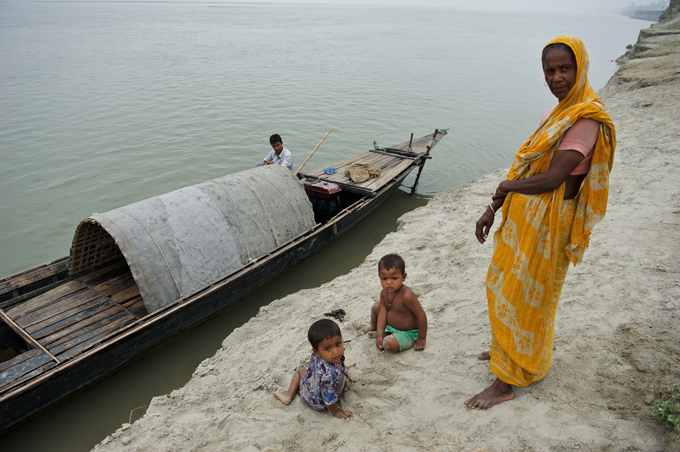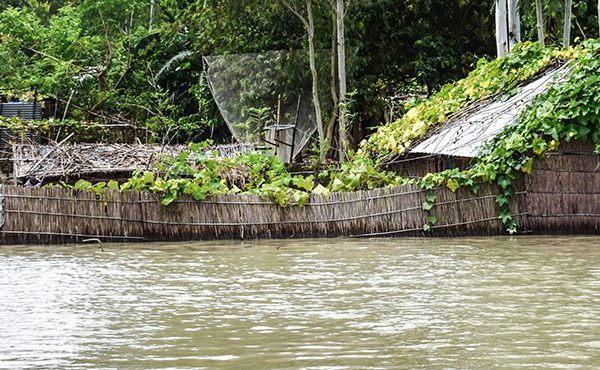Reading Time: 3 minutes
An organisation that has won marathons in the field of social development, BRAC has only recently begun dipping its toes in the ocean of environmental issues. Especially for a country like Bangladesh, it is impossible to isolate the ever-complicated ties that bond the contrasting elements of its human-centric and bio-centric problems. On this Earth Day, there is no other topic that seems more worthy of being highlighted, other than this one.
 Photo copyright: BRAC/Shehzad Noorani
Photo copyright: BRAC/Shehzad Noorani
An organisation that has won marathons in the field of social development, BRAC has only recently begun dipping its toes in the ocean of environmental issues. Especially for a country like Bangladesh, it is impossible to isolate the ever-complicated ties that bond the contrasting elements of its human-centric and bio-centric problems. On this Earth Day, there is no other topic that seems more worthy of being highlighted, other than this one.
Climate change, arguably our biggest environmental issue, is becoming an ever more intimidating bully that the country faces. A concern that remained controversial for a long time, its impacts no longer remain undeniable. But this land is not new to adversities… whether man-made or natural, its people always fight back! In the case of climate change, however, Bangladesh is one of the most vulnerable countries in the world and the next few decades will either make or break us. This is where BRAC comes in.
Since its birth, BRAC has held hands with the most deprived members of this society. In a country where social needs are so noticeably prevalent, the many and increasing environmental correlations are easily overlooked. The problem, however, lies in the misconception that environmental issues should only be a concern for the wealthy because immediate economic quantifiable results are deemed as more important. Consequently, an attitude prioritising ‘profit over people and people over the planet’ comes into play, putting Mother Nature in the back seat. However, she is NOT the kind of passenger who likes being driven around. In fact, she will always be the one holding the steering wheel and society will ultimately have to go in the direction she chooses.
And climate change is just one of the many tantrums she is throwing… and sooner rather than later, we will have to give in to her pleas. For an organisation such as BRAC, it is important to accept the reality of this and jump in on the bandwagon that prioritises the environment. Not only will it set an example for others to follow suite, it will in both the short run and the long run, hold significant benefits for the organisation and its beneficiaries. Demonstrating a commitment to environmental responsibility will ultimately save money, reduce BRAC’s carbon footprint, raise environmental awareness among the community and minimise wastage by conserving raw materials and energy, which will also improve organisational efficiency.
It is also important to recognise that climate change is a relatively new kind of problem and there is plenty of room for trial or error, just as there is plenty of room for innovation and success. BRAC’s Disaster Environment and Climate Change (DECC) programme has been putting some such measures to test and setting the motion for a new era. Some of its activities that will need to be scaled up over time include providing alternative livelihood options for women who are vulnerable to the impacts of climate change, capacity building on both institutional and community disaster preparedness, establishing a waste management plant, disaster resilient infrastructure, among many others. All these mark a symbolic paradigm shift, one where social development and environmentalism must develop a symbiotic relationship and progress hand in hand for mutual flourishing.
Furthermore, given its extensive outreach at the grassroots level, there is no other organisation more ideal than BRAC to revolutionise the thought process that has for so long disregarded environmentalism in the field of social development. BRAC has, within its grasp, the opportunity to lead by example and make integral to its management system, the value of conducting its initiatives in an ecologically responsible manner to protect the public; employees and the earth. In the changing tides that have for so long guided the organisation’s evolution, holding Mother Nature’s hand will inevitably have to be another step essential for its survival… another profound formula to ensure its continued success.





